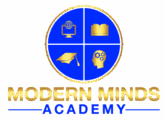What is homeschooling?
Homeschooling is an educational method where parents or guardians take on the responsibility of teaching their children at home instead of sending them to a traditional public or private school.
Parents or legal guardians may utilize the assistance of tutors, but must remain actively involved in the teaching and learning process.
Homeschooling began in the 1970’s and became increasing popular during the Covid-19 pandemic. Statistics for homeschooling is relatively low for Caribbean islands, however in the US about 6% of school aged children were homeschooled between the 2021 – 2022 school year which is approximately 3.1million students.
At Modern Minds Academy, we started with three (3) Secondary School level students in 2021 and our homeschooling population has grown to over one hundred (100) students in 2025 showing an upward trend in the growing popularity of homeschool in Trinidad and Tobago.
Here’s a quick breakdown:
- Why people homeschool: Reasons vary. Some want a customized education, others are motivated by religious or cultural values, and some feel their child thrives better outside of a traditional classroom setting. There are other factors such as bullying in school, the student learns better at home, the cost of textbooks, transport, uniforms is a lot and this option is more expensive than homeschooling a child. We must also take into consideration the needs of the child, due to illnesses and disabilities restricting or preventing children from learning in the mainstream environment.
- Who does the teaching? Usually, it’s the parents, but some families hire tutors or join co-ops (groups of homeschooling families who share teaching duties). Modern Minds Academy makes this process very easy for parents in Trinidad and Tobago and by extension the Caribbean. Parents seek the services of the academy to ensure their children are fully prepared for exams without the extra hassle of preparing and executing lessons. Hiring a professional tutor ensures that parents are guided in processes such as signing up their children for exams outside of traditional schooling.
- Curriculum: Families can choose from a wide range of curricula—some follow a structured program, others go for a more relaxed or interest-led learning approach (like unschooling). We will talk about unschooling in another article, but for now we will focus on choice of curriculum. Focusing on Trinidad and Tobago and the Caribbean, parents opt to go with the curriculum outlined by the Ministry of Education and the syllabus outlined by the Caribbean Examinations Council (CXC).
- Legal stuff: Homeschooling laws differ by country and even by state or province. Most places require some form of notification, record-keeping, or assessment. In Trinidad and Tobago there is no strict guideline with regards to this. However at Modern Minds Academy, we do track the students’ progress by generating termly reports, making it easier for parents to keep track of their students’ progress. In addition, homeschooling is legal in Trinidad and Tobago.
Would you like to know how to get started with it, or are you curious about the pros and cons?
